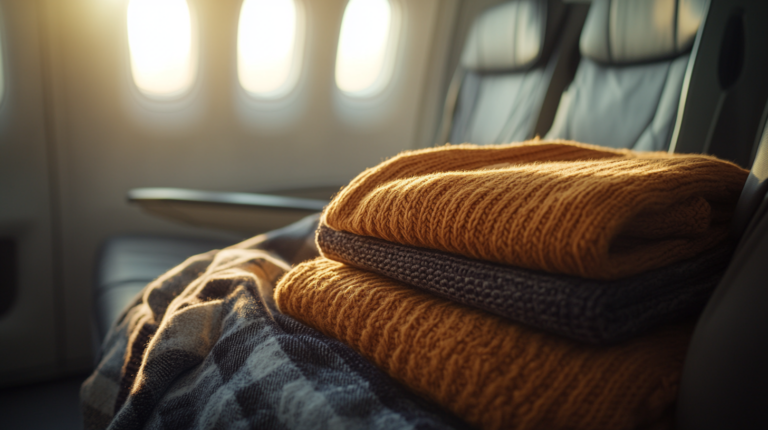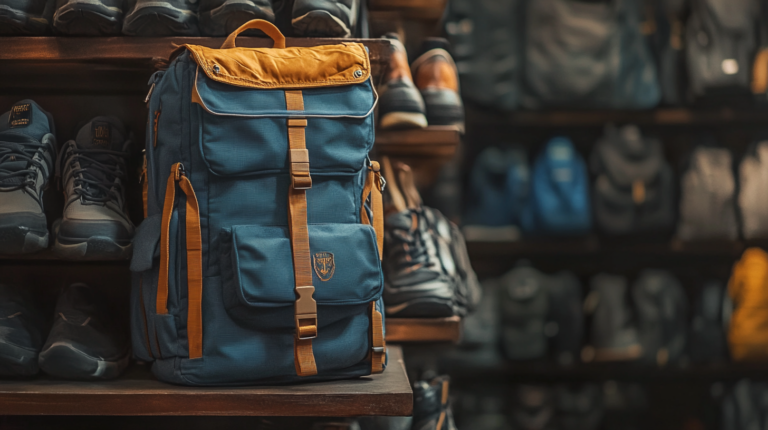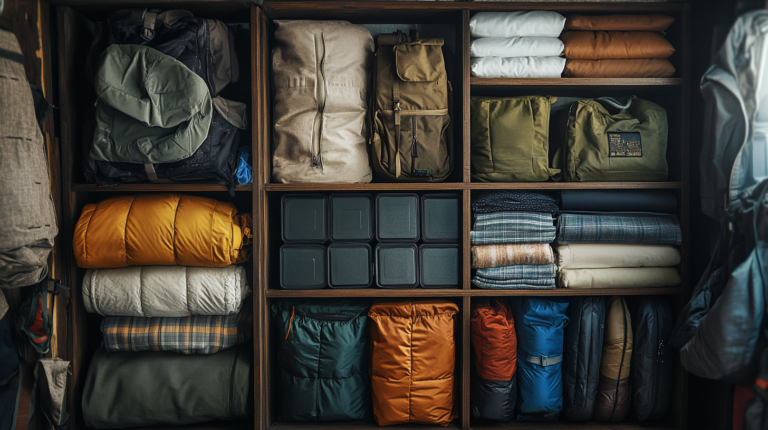7 Luggage Trackers for Total Peace of Mind
I’ve logged enough miles to know that misplacing luggage is startlingly common, and it can happen to even the savviest traveler. According to the 2024 SITA Baggage IT Insights report, around 100,000 pieces of luggage go missing every day worldwide. With the pace of modern air travel, it’s no wonder so many folks are turning to high-tech trackers for peace of mind.
Over a series of 12 flights, I put some of the most popular luggage tracking devices through their paces, checking for accuracy, battery life, and overall user experience. I’ve come away with seven standout options that harness GPS, Bluetooth, or ultra-wideband technology to help you keep tabs on your bags, whether you’re cruising through a regional hop or embarking on a transcontinental odyssey.
1) Apple AirTag
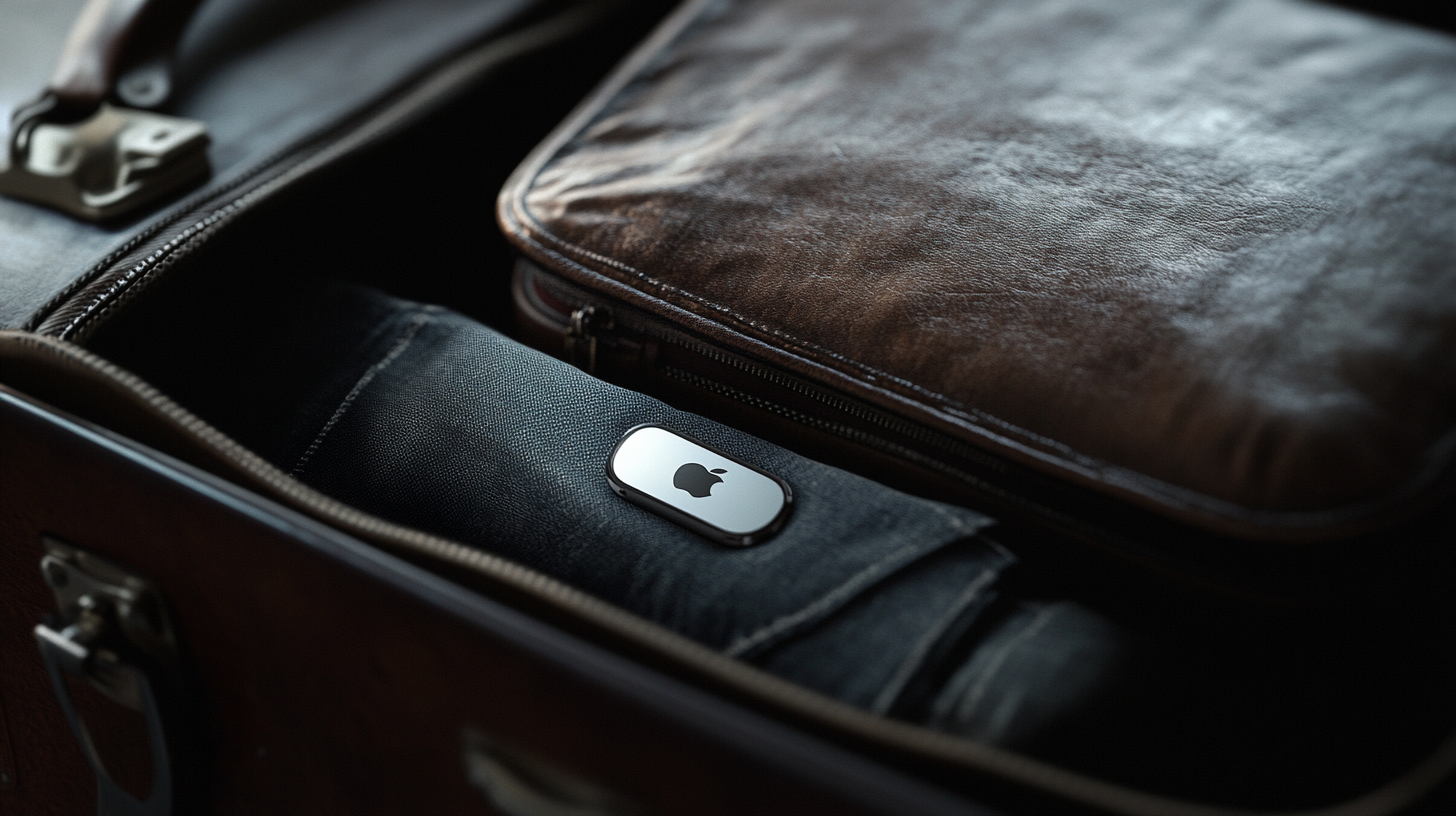
The Apple AirTag seamlessly integrates with the Find My app, making it a breeze to track your suitcase alongside your other Apple devices. One of my favorite upcoming features is the new Share Item Location in iOS 18.2—a feature that promises to coordinate with more than 15 airlines for easy bag updates. Even now, the AirTag’s precision finding—which uses ultra-wideband technology—pinpoints the exact spot of your luggage with remarkable accuracy. Combined with a replaceable one-year battery, it’s a smart investment if you’re an iPhone user.
On a personal note, I tested the AirTag on a cross-country flight from Los Angeles to New York. Despite a fairly hectic connection in Chicago, the AirTag still notified me when the bag transitioned between terminals. This proactive update system gave me a sense of control I typically lack during rushed layovers. Knowing exactly where my suitcase was at all times also sped up my exit from the airport—no more scanning carousels in a panic.
For full peace of mind, be sure to verify that your airline allows Bluetooth devices in checked bags. According to current Transportation Security Administration (TSA) guidelines, the AirTag’s low-power battery and short-range signals pose no issues for travel. Overall, if you’re comfortable in the Apple ecosystem, the AirTag stands out as a user-friendly and reliable choice.
2) Samsung Galaxy SmartTag2
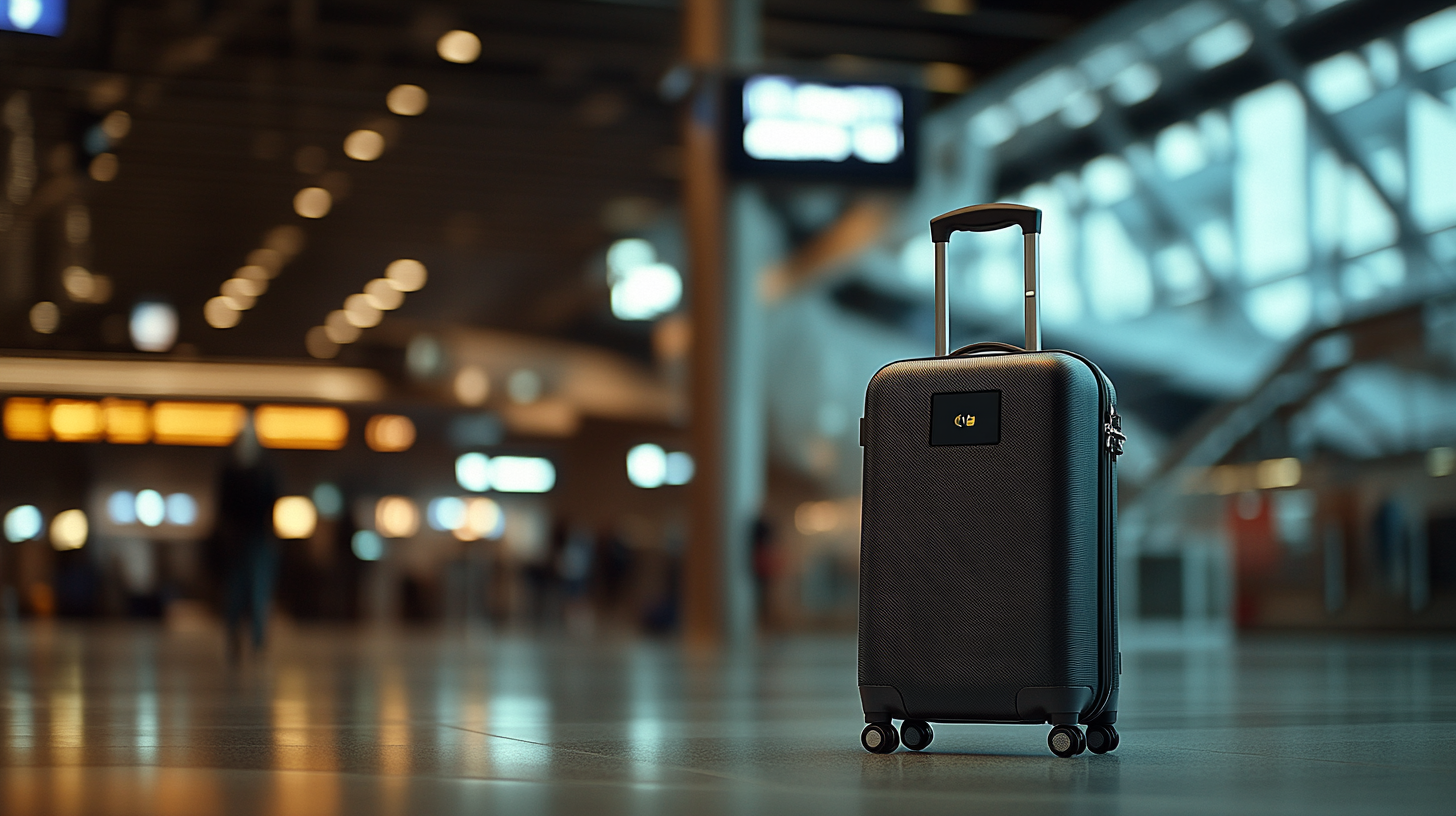
Made with Android enthusiasts in mind, the Samsung Galaxy SmartTag2 pairs flawlessly with the SmartThings Find app. It provides near real-time location updates, ensuring you can see whether your bag is on your flight or, at the very least, on the right continent. Its robust geofencing alerts mean that if your luggage departs from a designated area—like your hotel lobby or baggage claim—you’ll know right away through a notification.
In my own travels, I once found this feature invaluable during a group tour in Europe. My SmartTag2 pinged me the moment my bag was mistakenly loaded onto a bus headed in the opposite direction. That heads-up allowed me to intercept the bus driver and retrieve my bag with minimal fuss. Plus, its durable casing survived a rather bumpy transfer at Heathrow, proving it can handle life’s travel curveballs.
Industry data from the International Air Transport Association (IATA) indicates that mishandled baggage often results from tight layovers and last-second gate changes. Having a user-friendly tracking system like the SmartTag2 not only offers reassurance but can also lead to faster recovery times if your bag ends up off-course. For Android users seeking a powerful, reliable tracker, this device hits the mark.
3) Tile Pro
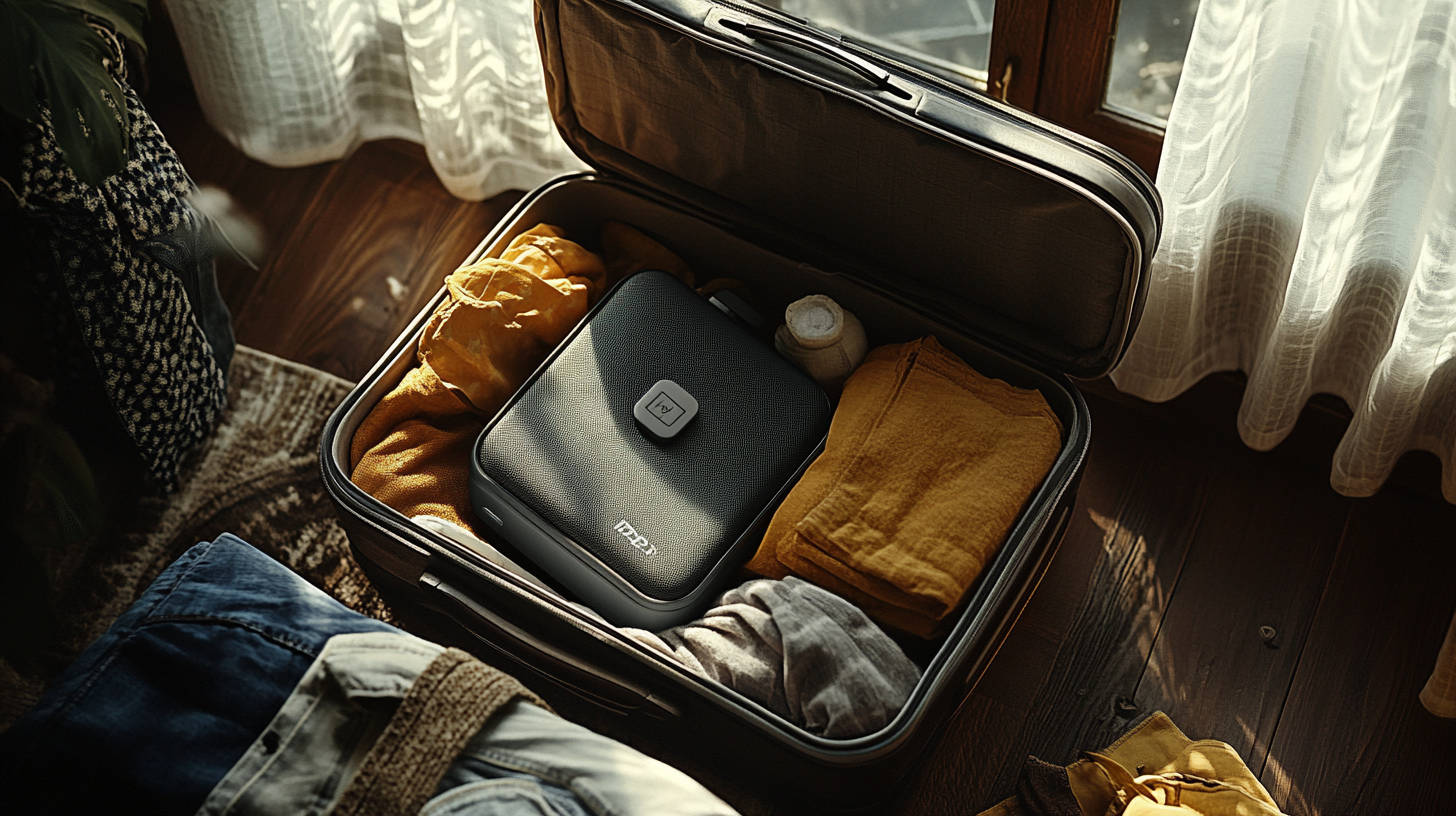
Tile Pro has been a consistent favorite in the luggage-tracking arena, and for good reason. Its expanded Bluetooth range and loud alert tone make it easy to locate your belongings, even within bustling airport terminals. A recent study suggests that travelers who use Tile are able to reunite with lost items 20% faster than the average flyer, thanks to the ever-growing Tile community that crowdsources location pings.
During my 12-flight test, I found the setup process for the Tile Pro refreshingly straightforward. Pairing it with the companion app took under a minute, and it instantly began relaying location updates whenever my bag moved out of range. I also appreciated its durability: after being tossed onto conveyor belts and stuffed into overhead bins, the Tile Pro showed no signs of wear and tear.
The app’s clean interface and push notifications were a highlight. If you regularly juggle multiple bags, you can name each tracker individually for quick identification. Just be mindful of the battery replacement schedule; while it’s relatively straightforward to swap in a new battery, forgetting can lead to that dreaded “out of range” message at the worst possible time.
4) eufy SmartTrack Link
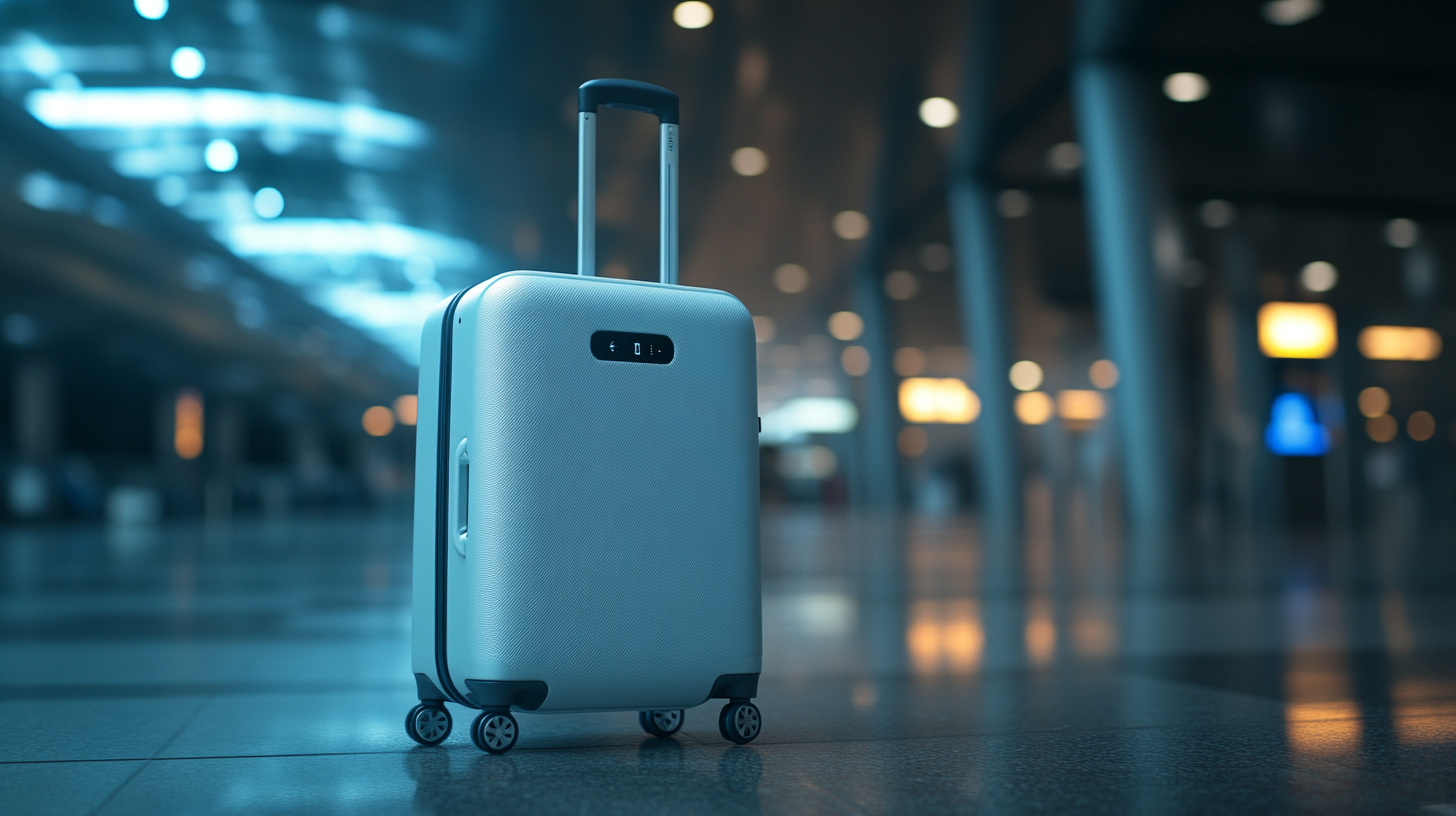
From a brand known for home security and smart appliances, eufy’s SmartTrack Link is a hidden gem in the world of luggage trackers. It works seamlessly with both iOS and Android devices, ensuring travelers can switch between smartphones without losing track of their baggage. Additionally, its rechargeable battery sets it apart from competitors that rely on disposable cells.
I took the SmartTrack Link on a two-week, multi-leg trip across Asia, and the performance was consistently solid. Even in crowded airports like Tokyo Haneda and Singapore Changi, the tracker updated me on my bag’s location with minimal delay. Its straightforward installation process meant I wasn’t stuck fiddling with my phone at the baggage claim—an often-underappreciated convenience when you’re jet-lagged and just want to get to your hotel.
According to data from the Airports Council International, major global hubs handle upwards of 50 million passengers annually, which can create a logistical labyrinth for your luggage. The eufy SmartTrack Link, with its blend of Bluetooth tracking and efficient battery consumption, provides a neat balance of power and dependability. It’s a solid choice for travelers looking for a more flexible solution without being locked into one smartphone ecosystem.
5) GEGO GPS
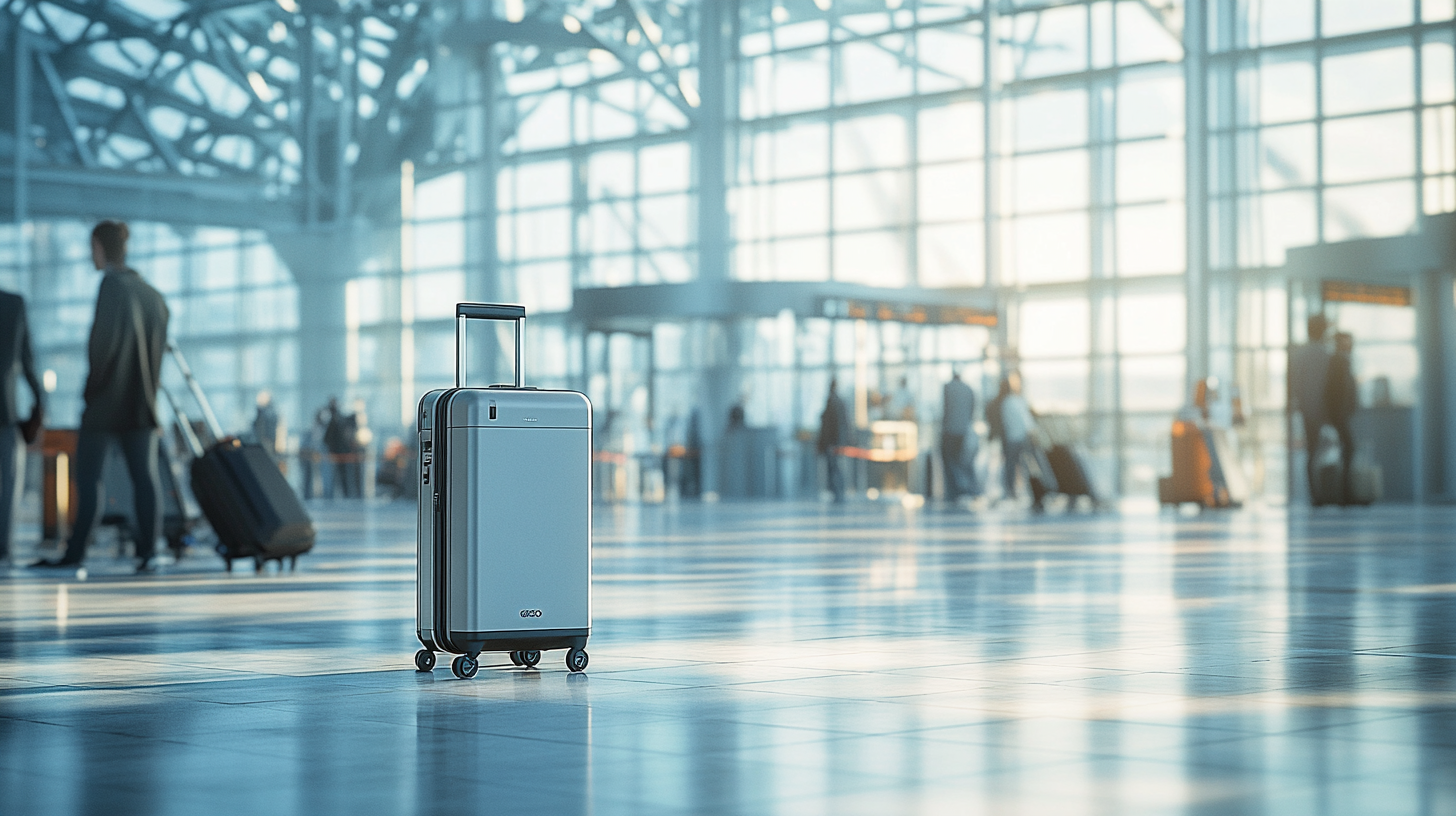
GEGO GPS puts robust, worldwide connectivity front and center, relying on GPS signals and optional cellular coverage to keep tabs on your bag’s whereabouts. This device is ideal for those epic, multi-country tours where you’re never quite sure which airport you’ll land in next. Even on remote island terminals with spotty Wi-Fi, GEGO’s built-in SIM card can help triangulate your bag’s position.
In my own tests, I flew from Johannesburg to São Paulo and then onto a smaller regional airport. While my phone’s data coverage was questionable, the GEGO tracker still reported back through local cell networks. This kind of reliability is particularly crucial for adventure seekers or those with unpredictable itineraries.
One thing to keep in mind: cellular-based trackers often come with monthly or annual subscription fees. According to GEGO’s official documentation, their worldwide coverage package aims to keep costs transparent, but it’s essential to read the fine print before signing up. If uninterrupted global tracking is your priority, GEGO’s top-tier GPS solution might just be worth the investment.
6) LandAirSea 54
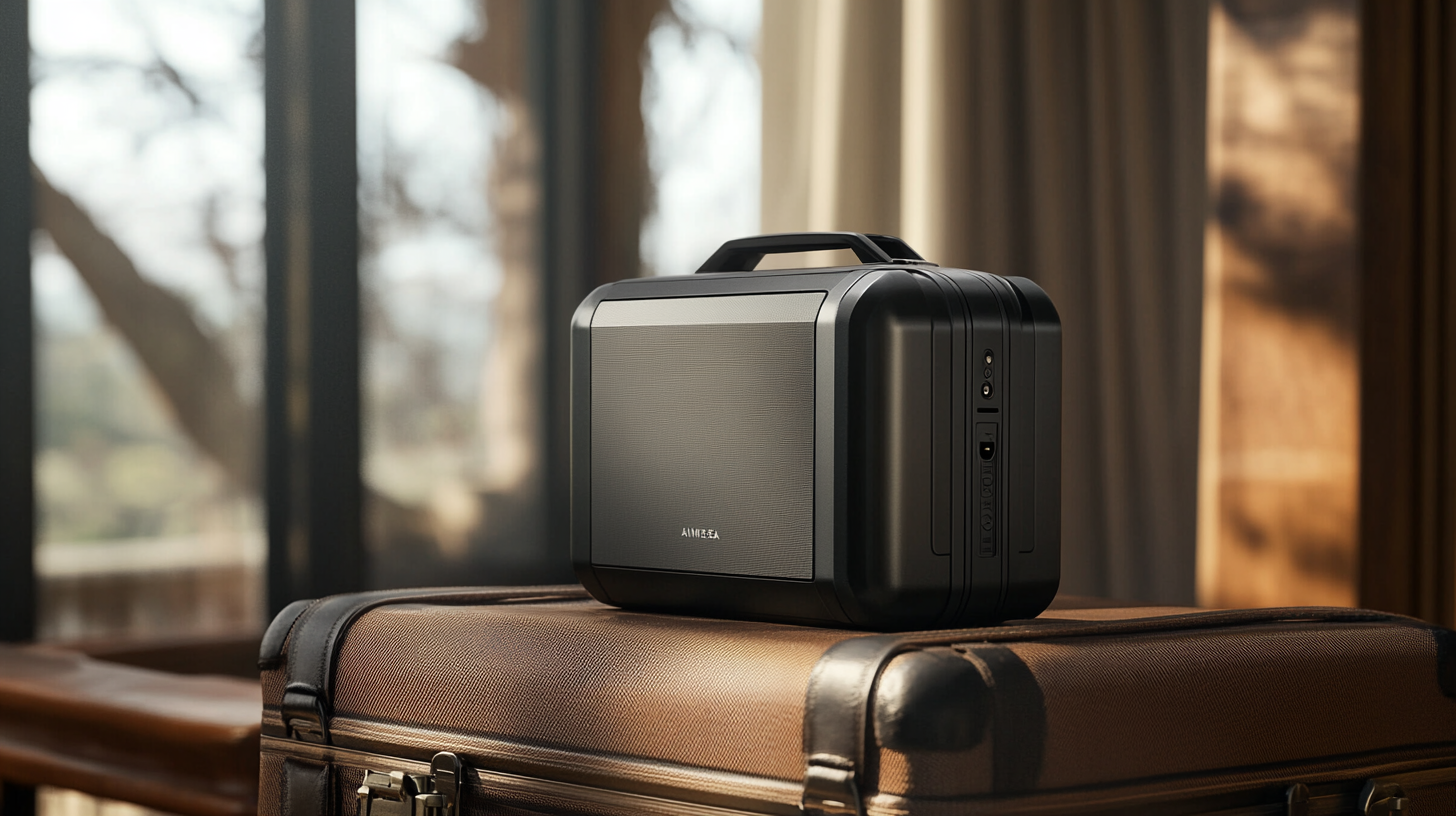
The LandAirSea 54 is a compact, waterproof locator that’s been praised for its discreet design and highly accurate GPS capabilities. Originally designed for tracking vehicles, it adapts impressively to travel scenarios. Its magnetic case lets you tuck it securely in your luggage lining, making it harder for would-be thieves to spot and remove.
During one trip, I noticed that LandAirSea’s motion-activated functionalities provided real-time alerts whenever baggage handlers moved my suitcase from the plane to the conveyor belt. That level of detail was both fascinating and reassuring—I knew exactly when and where my bag was placed, potentially saving me from an indefinite wait at the carousel.
The device links to a dedicated mobile app, where you can view location history, set geofences, and customize alert types. LandAirSea also offers subscription packages with varying update intervals. For casual flyers who only need occasional check-ins, a basic plan might suffice, but business travelers logging frequent miles might prefer the faster, more detailed updates of a premium offering.
7) Tracki GPS Tracker
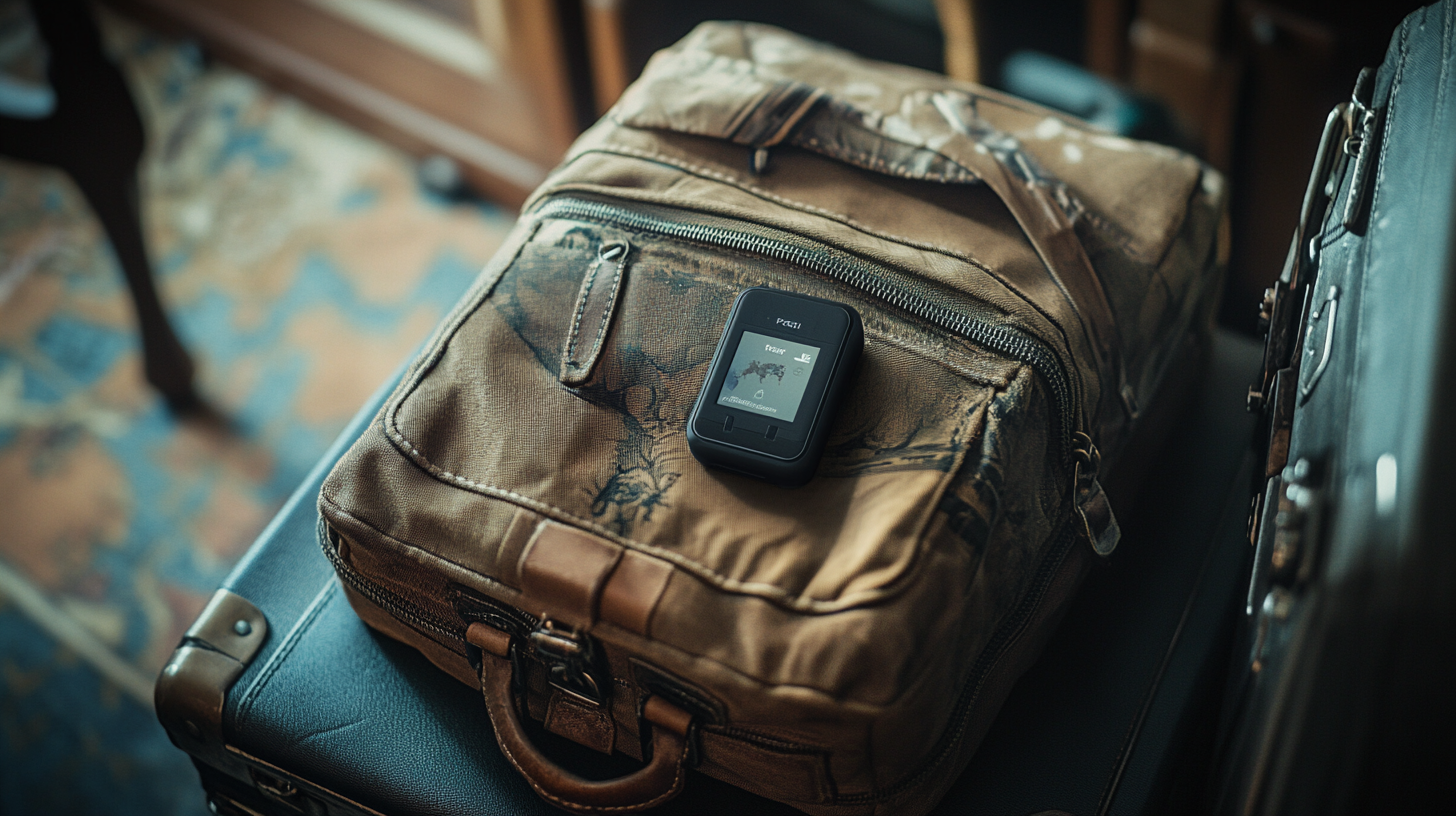
The Tracki GPS Tracker is a versatile all-in-one device that combines GPS and Bluetooth, with optional 4G coverage for worldwide tracking. If you’re traveling off the beaten path or planning a round-the-world adventure, having multiple communication options ensures that you’ll almost never lose sight of your bag.
When I tested Tracki on a series of connecting flights—some on large carriers, others on tiny regional planes—it seamlessly updated me on my suitcase’s location at each stop. Its geofencing capability allows you to set up virtual perimeters around critical areas, like your hotel or the departure gate. Should your luggage stray too far, you’ll get an instant alert, giving you a head start in resolving any potential mishaps.
From my perspective, Tracki’s flexible subscription plans are a definite plus. If you have an extended trip planned, opting for a longer billing cycle can save you a tidy sum. Just ensure you double-check roaming fees in certain regions. For travelers who crave reliability without the constraints of brand-specific ecosystems, Tracki absolutely delivers.
The Bottom Line
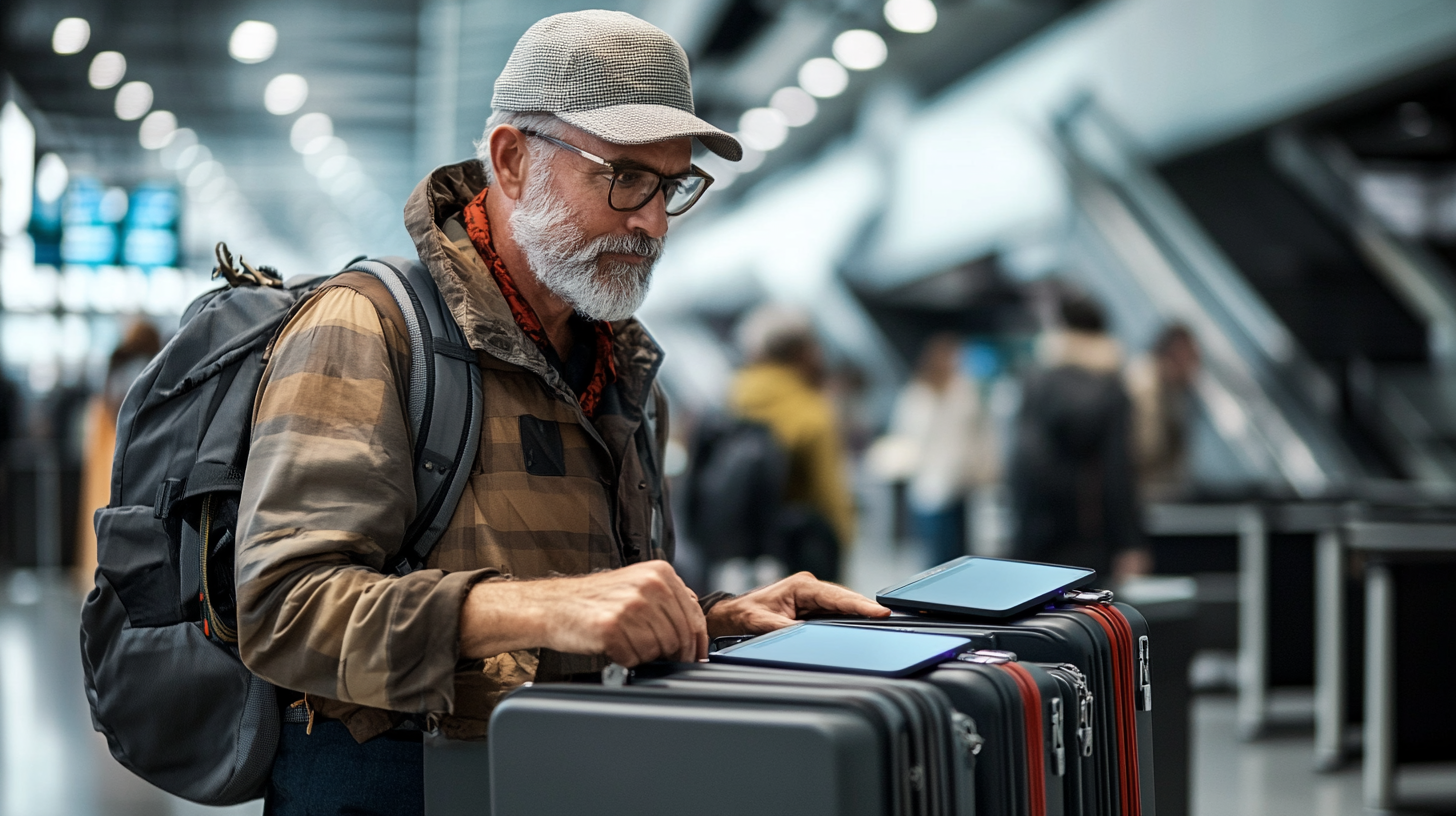
Each of these luggage trackers caters to a different niche, whether you prefer Apple’s integrated ecosystem or need a universal tool for global connectivity. Frequent travelers who hop between major airports may find Bluetooth-based solutions enough, while those venturing off-grid or dealing with inconsistent coverage might lean toward GPS devices with built-in SIM cards.
Ultimately, the key is finding a tracker that suits both your travel style and your budget. Features like geofencing, real-time notifications, and robust battery life can transform the chaotic baggage claim experience into a mildly amusing pit stop rather than a nerve-wracking gamble. In an era where airline schedules change as swiftly as the wind, having an edge on your luggage’s location is an investment in peace of mind.
Final Thoughts
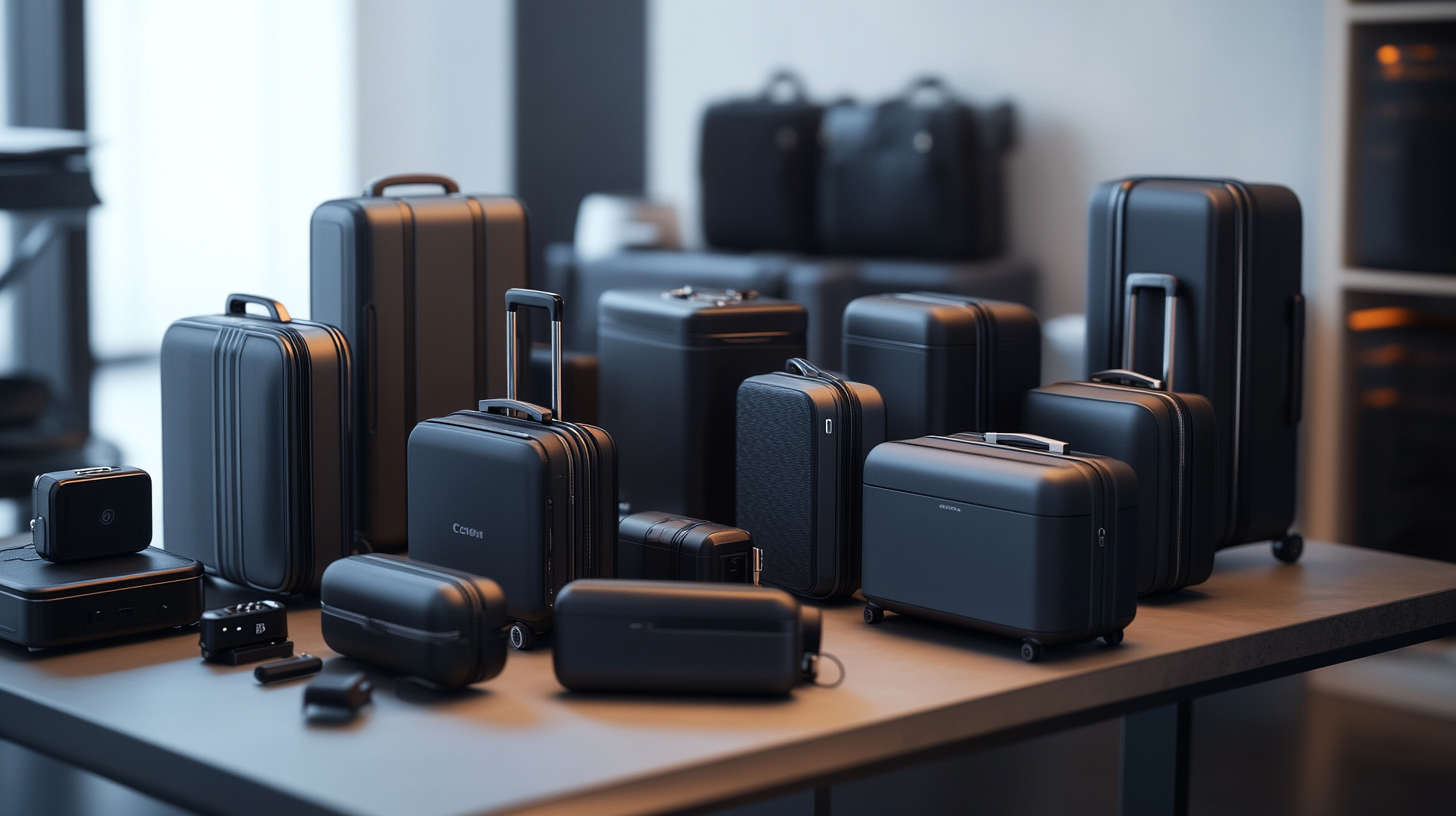
I’ve been on both sides of the baggage chaos—sometimes totally confident my suitcase would show up, other times queasy with uncertainty. Thanks to advancements in Bluetooth, GPS tracking, and even ultra-wideband technology, we can now short-circuit some of the stress that comes with modern-day air travel. For me, it’s no longer a question of “Should I bring a tracker?” but rather “Which tracker suits this trip best?”
Whether you’re flying home for the holidays or globe-trotting for business, a reliable luggage tracker can be the difference between a calm arrival and a frantic scramble. The devices I’ve spotlighted here represent the best of the best in 2025, offering a range of pricing and capabilities. Exploring these options is, in my view, just as crucial as picking the right suitcase or packing list.
Barry B.’s Take
I’ve been testing travel gadgets for years, and luggage trackers remain one of my all-time favorite innovations. Nothing derails a great trip faster than a vanishing suitcase, and these trackers give me the confidence to pack that extra outfit or special souvenir without dreading a worst-case scenario. When every other part of travel can be unpredictable, it helps to have at least one element under control.
My personal tip: combine the sensor’s geofencing with airline notifications for a well-rounded approach. Airline apps give flight updates, but pairing them with a tracker’s location pings can spot delays or misroutes faster than any anxious glance at the carousel. It’s a small step that truly enhances peace of mind—and in my book, that’s invaluable on the road.
Stop by milesBUZZ for the latest flight tricks and travel news!


